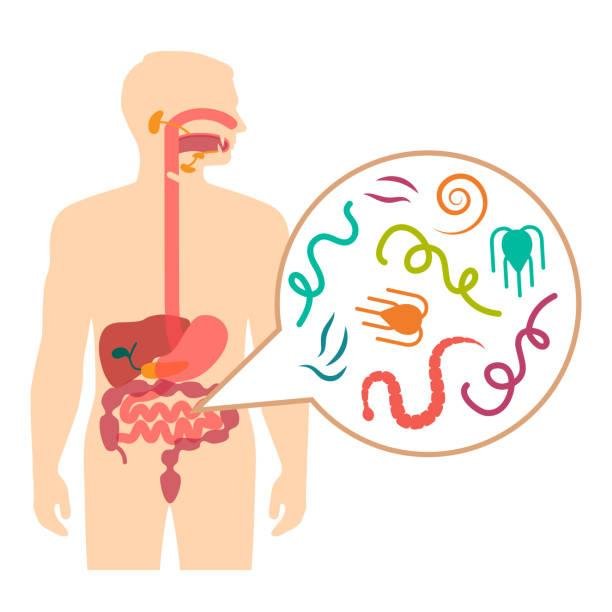Gastroesophageal reflux, commonly known as acid reflux, occurs when stomach acid flows back into the esophagus, leading to discomfort, heartburn, and even damage to the esophageal lining. Chronic reflux, called gastro reflux disease (GERD), affects millions of people worldwide. While medications can help manage symptoms, many individuals prefer natural remedies to prevent and treat acid reflux. Here’s a comprehensive guide on how to handle acid reflux naturally for a healthier and more comfortable life.
Ranitidine 150 mg is a medication commonly used to reduce stomach acid and treat conditions like acid reflux, heartburn, and ulcers. It works by blocking histamine, which helps decrease the amount of acid your stomach produces. You can Ranitidine 150 mg through Dosepharmacy for convenient access to this effective remedy.
Understanding Gastroesophageal Reflux
Acid reflux occurs when the lower esophageal sphincter (LES)—a muscle that acts as a valve between the stomach and the esophagus—relaxes abnormally, allowing stomach acid to move upward. Symptoms of acid reflux include heartburn, regurgitation of acid, chest pain, and a sour taste in the mouth. These symptoms can be aggravated by certain foods, lifestyle habits, and stress.
1. Adjust Your Diet
Diet plays a crucial role in managing acid reflux. Certain foods can trigger symptoms, while others can help alleviate them. Here are some dietary changes to consider:
Foods to Avoid:
- Spicy Foods: These can irritate the esophagus and increase acid production.
- Citrus Fruits: Oranges, lemons, and grapefruits can be too acidic.
- Tomatoes: Including tomato sauce and ketchup, which are acidic.
- Fatty and Fried Foods: High-fat meals can relax the LES, leading to reflux.
- Caffeine and Carbonated Beverages: These can increase acid production and lead to bloating.
- Chocolate and Peppermint: Both can relax the LES.
Foods to Include:
- Whole Grains: Brown rice, oatmeal, and whole wheat bread can help absorb stomach acid.
- Lean Proteins: Chicken, turkey, and fish are low in fat and less likely to cause reflux.
- Vegetables: Leafy greens, carrots, and broccoli are alkaline and can soothe the stomach.
- Bananas and Melons: These fruits are less acidic and gentle on the digestive system.
- Ginger: Known for its anti-inflammatory properties, ginger can help reduce reflux symptoms.
2. Eat Smaller, More Frequent Meals
Large meals can increase pressure on the stomach, pushing acid into the esophagus. Instead of three big meals a day, try eating five or six smaller meals. This approach helps reduce the strain on the digestive system and minimizes the risk of reflux.
3. Chew Your Food Thoroughly and Eat Slowly
Taking time to eat slowly and chew food thoroughly can help prevent acid reflux. Proper chewing breaks down food more effectively, making it easier for your stomach to digest. Eating quickly can lead to overeating and increased pressure on the LES.
4. Elevate the Head of Your Bed
Acid reflux symptoms often worsen at night due to lying flat. Elevating the head of your bed by about 6-8 inches can help keep stomach acid in place while you sleep. Use blocks or a wedge pillow to achieve the elevation, and avoid lying down immediately after meals.
5. Maintain a Healthy Weight
Excess weight, especially around the abdomen, can increase the pressure on the stomach and LES, leading to acid reflux. Losing weight through a balanced diet and regular exercise can help alleviate symptoms. Even a small reduction in weight can make a significant difference.
6. Stay Hydrated, but Avoid Drinking During Meals
Hydration is essential for digestive health, but drinking large amounts of water during meals can cause the stomach to expand and increase the risk of reflux. Instead, drink fluids between meals, and focus on hydrating with water, herbal teas, or alkaline water to balance stomach acidity.
7. Manage Stress and Practice Relaxation Techniques
Stress can trigger or worsen acid reflux by affecting digestion and increasing stomach acid production. Incorporating stress-reducing activities into your routine can help manage symptoms. Consider practices such as:
- Deep Breathing Exercises: Slow, deep breaths can calm the nervous system and improve digestion.
- Yoga and Meditation: Gentle stretching and mindfulness can reduce stress and promote relaxation.
- Regular Physical Activity: Exercise can boost mood, aid digestion, and support weight management.
8. Use Natural Remedies and Supplements
Several natural remedies can help soothe and prevent acid reflux. Here are a few to consider:
- Ginger Tea: Sipping ginger tea can calm the stomach and reduce inflammation. Boil fresh ginger slices in water, strain, and drink before or after meals.
- Apple Cider Vinegar: A small amount of diluted apple cider vinegar may help balance stomach acid levels. Mix one tablespoon of apple cider vinegar in a glass of water and drink before meals.
- Aloe Vera Juice: Aloe vera has soothing properties and can help heal the lining of the esophagus. Drink a small amount of aloe vera juice before meals to reduce inflammation.
- Chamomile Tea: Chamomile can reduce stress and may help lower stomach acidity. Drinking a cup before bedtime can promote relaxation and improve sleep.
- Probiotics: These beneficial bacteria can improve gut health and digestion, reducing the risk of acid reflux. Probiotic-rich foods like yogurt, kefir, and fermented vegetables can be beneficial.
9. Avoid Tight Clothing
Tight clothing, especially around the waist, can put pressure on the abdomen and LES, increasing the risk of acid reflux. Opt for loose-fitting, comfortable clothing, particularly after eating.
10. Quit Smoking and Limit Alcohol
Smoking weakens the LES, making it easier for stomach acid to enter the esophagus. Quitting smoking can reduce the frequency and severity of acid reflux symptoms. Additionally, alcohol, particularly red wine, can trigger reflux. Limiting or avoiding alcohol can improve symptoms.
Conclusion
Preventing and treating gastroesophageal reflux naturally involves a combination of dietary changes, lifestyle adjustments, and natural remedies. While these methods can be effective, it’s essential to remember that everyone’s body is different. If symptoms persist or become severe, consulting a healthcare provider is crucial for proper diagnosis and treatment. By taking a proactive approach, you can manage acid reflux and enjoy a more comfortable, healthy life.
Post navigation
Previous Post
 Ensuring Quality: Concrete Contractors Guide
Ensuring Quality: Concrete Contractors Guide


